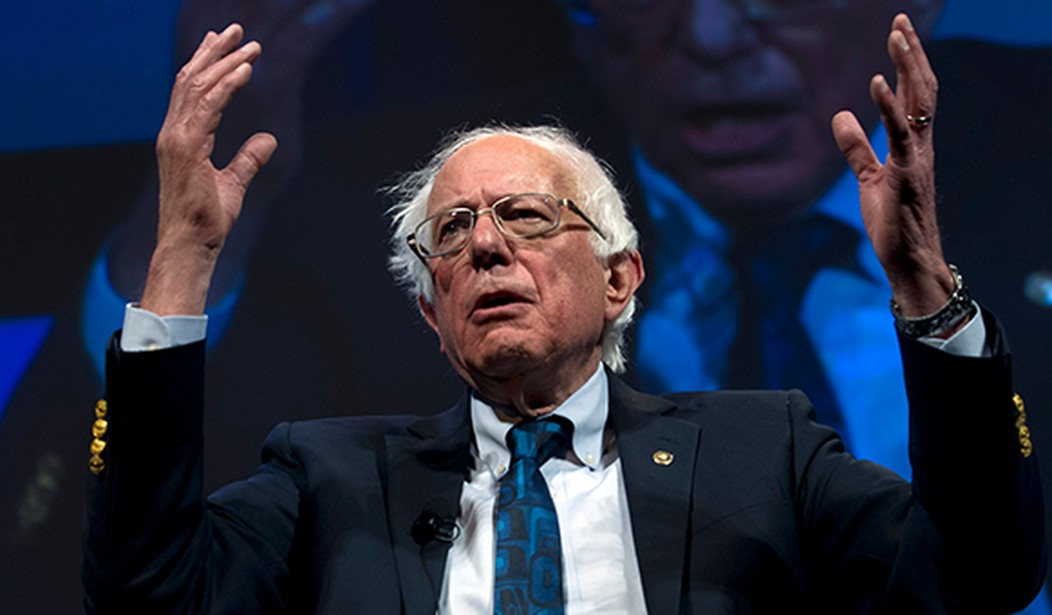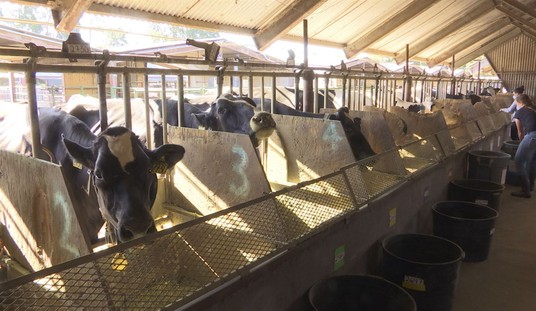If I told you there was a movement to create a navy or air force, you might respond, "Don't we already have those?" If I said we need a movement to convince bears to relieve themselves in the woods, you might say, "Wait. Isn't that happening already?"
But if I said we needed to tax the rich, a lot of people's first reaction would be, "Yes! It's about time!"
In fact, there's an astroturf movement based on precisely this notion. There was just a big conference, fittingly named the "Tax the Rich!" conference, hosted by a group called Patriotic Millionaires.
"Tax the Rich. Save America. Yes, it really is that simple," they explain in their mission statement.
This slogan is simply dishonest; rich people do, in fact, pay taxes. Just under half (48 percent) of federal revenue comes from income taxes. If you define the rich as the top 1 percent -- which is probably too narrow, depending on the region of the country -- the rich pay a big chunk of that. In 2016, according to the Tax Foundation, the top 1 percent accounted for 37.3 percent of all income tax revenue, a share that was greater than the bottom 90 percent of all payers of income tax combined. The top half of taxpayers paid 97 percent of income taxes.
The Tax Policy Center estimates that 44 percent of Americans won't pay any federal income taxes for 2018. That doesn't mean they don't pay any taxes, of course. Payroll taxes eat up a big chunk of many Americans' paychecks -- a fact we all learn the first time we shout, "Who the hell is FICA!?"
But the income tax is remarkably progressive. Once again citing the Tax Policy Center (a joint project of two left-of-center think tanks: the Brookings Institution and the Urban Institute), Americans in the top 20 percent paid an estimated 87 percent of income taxes for 2018. This was up from 84 percent in 2017, which means that the "Trump tax cuts" actually made the tax code more progressive.
Recommended
The folks shouting "Tax the rich!" know this, which is why, when they move beyond sloganeering, they say that what they really want is for the rich to "pay their fair share." This is a more debatable claim because "fair" is in the eye of the beholder. It's not preposterous to argue that the rich, however defined, should pay a few percentage points more in income tax in the name of fairness. But it's also not preposterous to say that when 1 percent of the people provide more than a third of income tax revenue, they're already paying their fair share -- and suggesting that people who don't want to pay even more are "unpatriotic" is bullying nonsense.
While we're on the topic of fairness, there's another common argument for hiking income taxes for the wealthy, or for even simply taxing wealth itself: The rich deserve it. Or, to be more generous, the super-rich don't deserve their money, while the rest of the country does.
The New York Times' Farhad Manjoo recently argued for "abolishing" billionaires outright. Presidential candidates Elizabeth Warren and Beto O'Rourke say we should make the rich less rich because income inequality is bad. Candidate Bernie Sanders and Rep. Alexandria Ocasio-Cortez (and many others) think that everything from Medicare for All to the Green New Deal can be financed largely -- or entirely -- by pillaging the bank accounts of the rich.
This is populist insanity masquerading as public finance. According the Manhattan Institute's Brian Riedl, doubling the top tax brackets (from 35 and 37 percent to 70 and 74 percent) "would close just one-fifth of the long-term Social Security and Medicare shortfall. Even seizing all annual income earned over $500,000 would not come close."
You could literally confiscate 100 percent of the wealth of the entire one percent and not come close to paying for Sanders' version of Medicare for All (price tag: $32 trillion).
This points to my real problem with all of this "tax the rich" talk. It works from the assumption that the problems of ordinary Americans are the result of a tiny group of people selfishly refusing to do their part. Not only does this assume that the wealth of people who have paid considerable taxes still belongs to everyone, it's also simple scapegoating. By my lights, it would be no less outrageous if the math added up. But it doesn't, which makes it even more irresponsible.

























Join the conversation as a VIP Member